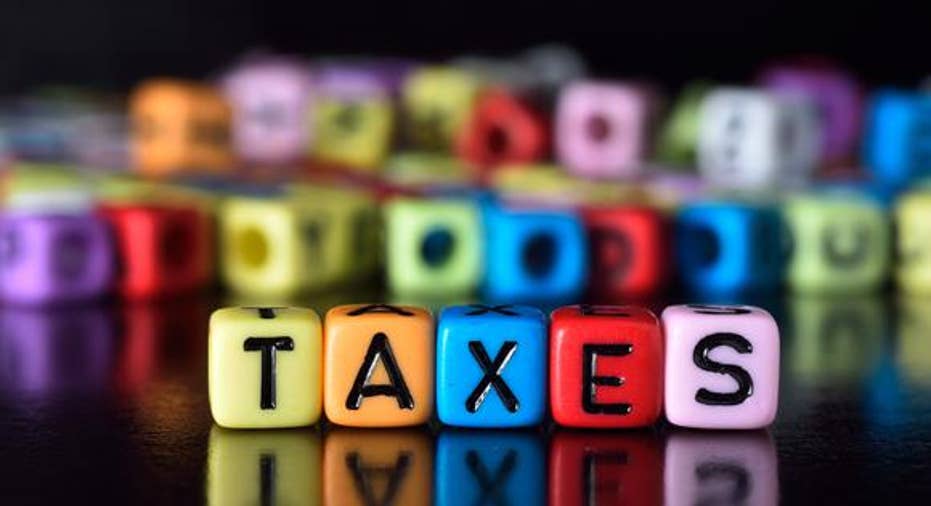3 Things You Never Knew About Taxes

Nearly everyone pays taxes, but few people know everything there is to know about the tax system. In the thousands of pages that make up the federal tax code, you'll find plenty of secret and little-known provisions with big implications. Below, you'll find some facts from Motley Fool contributors that you probably didn't know about and might find interesting.
Dan CaplingerDespite the many court cases that have gone against them, many taxpayers claim that they don't owe any taxes by making bogus arguments about the constitutionality of the income tax system. Tax evaders will appeal to their First Amendment right to religious objection, their Fifth Amendment protection from self-incrimination, and even the 13th Amendment prohibition against involuntary servitude. Some say the 16th Amendment's specific language permitting an income tax is invalid because it was arguably not ratified properly by the requisite number of states, while others assert their immunity to federal income tax on the grounds that they aren't asking any privileges or benefits from the federal government.
All of these constitutional arguments have been repeatedly rejected by court cases throughout the history of the income tax system, and the IRS warns that using such objections won't exempt you from interest, penalties, and other provisions that apply to those who fail to pay their income tax in a proper and timely fashion. Even worse, some disreputable organizations offer to protect unsuspecting taxpayers from the IRS using these methods, thereby getting their clients in trouble. It's important not to believe these claims and simply accept that you have to pay your taxes.
Todd CampbellAlthough all workers pay Social Security and Medicare payroll taxes, many of us don't fully understand how they relate to those social programs.Taxes paid under the Federal Insurance Contributions Act, or FICA, are used to pay Social Security and Medicare. Specifically, employees and employers each pay 6.2% of your wages to fund Social Security. Another 2.9% tax is split equally between employees and employers to pay for Medicare.
Unfortunately, as members of the giant baby boomer generation retirein droves, benefit payouts are outstrippingthe tax revenue brought in via payroll taxes. As a result, the combined 12.4% in Social Security tax has fallen short of funding 100% of Social Security's outlays since 2010.
Currently, the 12.4% tax only applies on income of up to $118,500. However, presidential candidates Hillary Clinton and Bernie Sanders have suggested raising the income cap, meaning that higher-income earners would pay higher payroll taxes -- perhaps much higher.
That's already happening with Medicare. Most Americans only pay 1.45% of the 2.9% Medicare tax, while people who earn more than $200,000 pay an additional 0.9% Medicare tax surcharge.
Selena MaranjianOne tax concept that many people don't grasp is that the tax bracket you're in doesn't reflect your overall tax rate. For 2015 and 2016 tax years, there are seven tax brackets: 10%, 15%, 25%, 28%, 33%, 35%, and 39.6%. If you're a single filer who earns $95,000 in 2016, that puts you in the 28% bracket -- but that does notmean you'll be paying 28% of $95,000, or $23,750, in taxes. Instead, different segments of your income will be taxed at 10%, 15%, 25%, and 28%; only your income above $91,150 will be taxed at 28%.
The Center on Budget and Policy Priorities offers a nice example of this, featuring a family of four with an income of $110,000. Their first $18,500 will be taxed at 10%, their next $56,450 will be taxed at 15%, and their last $6,500 will be taxed at 25%. Fully $28,600 of their income will not be taxed at all, due to exemptions and deductions. When you add up all the tax they owe, it ends up being just 9% of their income. That's referred to as their "effective" tax rate.
Here's another example: The Obamas had an adjusted gross income (AGI) of $436,065in 2015, landing them in the 35% tax bracket. But their effective tax rate was 18.7%. Again, that's because their income up to $151,200 was taxed no more than 25%, while another big chunk faced the 33% rate. The couple donated more than $64,000 to charity -- nearly 15% of their income -- which helped reduce their taxable income, too.
Go ahead and check out which tax bracket you're in, but don't assume that you're really paying that much overall. Most mid-range earners have an effective tax rate in the teens.
The article 3 Things You Never Knew About Taxes originally appeared on Fool.com.
Try any of our Foolish newsletter services free for 30 days. We Fools may not all hold the same opinions, but we all believe that considering a diverse range of insights makes us better investors. The Motley Fool has a disclosure policy.
Copyright 1995 - 2016 The Motley Fool, LLC. All rights reserved. The Motley Fool has a disclosure policy.



















